The Presidential Elections, 2022: The Outsider from Cannes
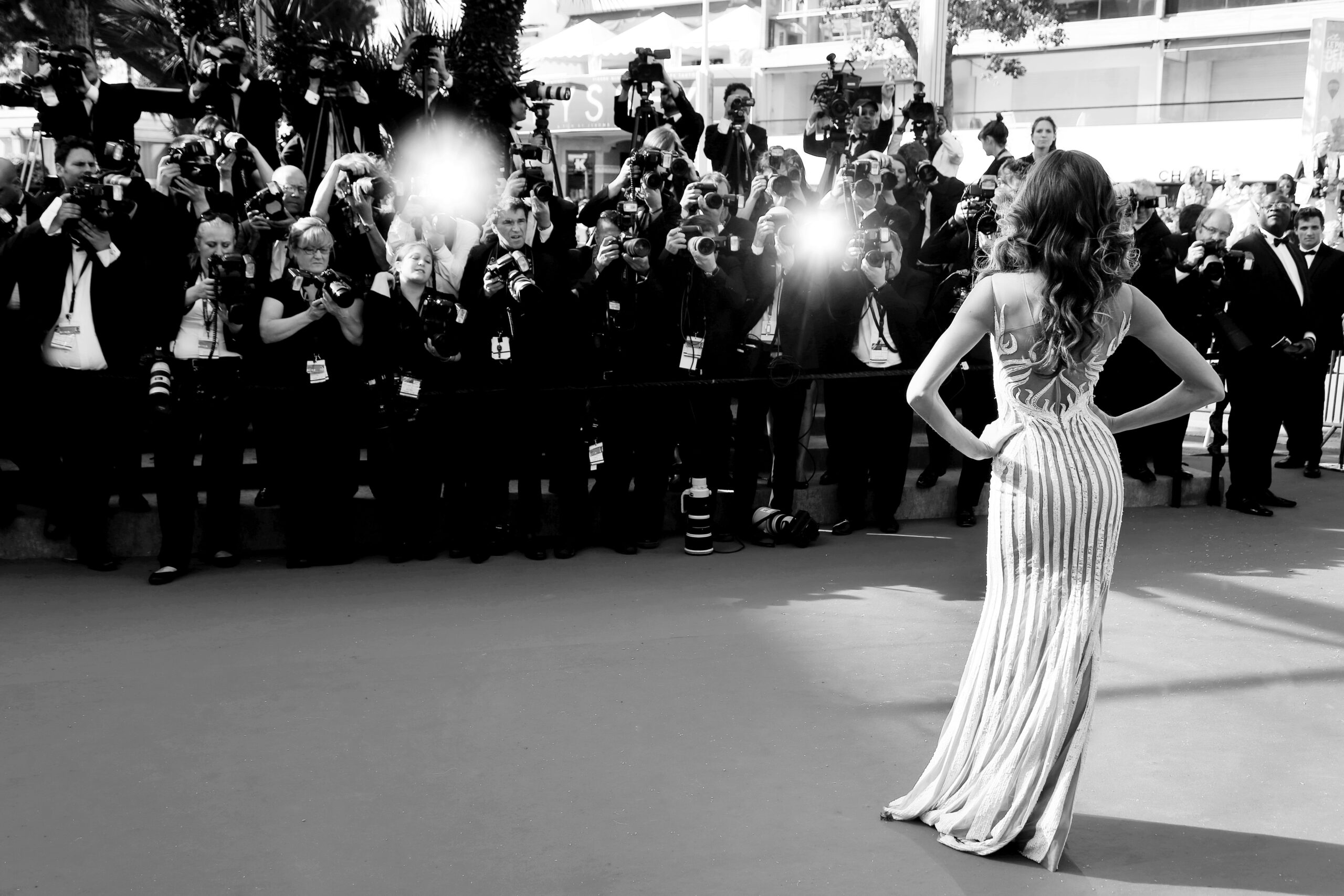
David Lisnard has been Mayor of Cannes–home of Riviera beaches, sun, the film festival– since 2014. He was reelected to another six year term in March 2020 by 88% of the vote. He is 52. He is a father to three children from his first marriage, and a stepfather to the son of his second wife, Jacqueline. He is a marathoner, having run 42 kms in less than three hours on several occasions. He also boxes. He has been a member of the conservative party through three of its main incarnations–RPR, UMP, and now Les Républicains–and though he started his career as a parliamentary attachée to Deputy Jacques Pélissard–and though there are many “deputy-mayors” in the Assembly–he has chosen to remain active regionally and locally, as mayor of Cannes, and as vice-president and spokesman of the national association of mayors.
For the past couple of years, he has battled to turn the îles-des-Lérins, off the coast, into a Unesco heritage site; his opponent is Macron’s government, which wants to sell off parcels of the islands. Recently, the one privately-owned property on Sainte-Marguerite was purchased by the Swiss company Ultima Capital, which is planning to develop it as a 12-suite luxury hotel. Lisnard has said no, on the basis of the PLU (Plan Local d’Urbanisme, or town planning). The struggle is ongoing.
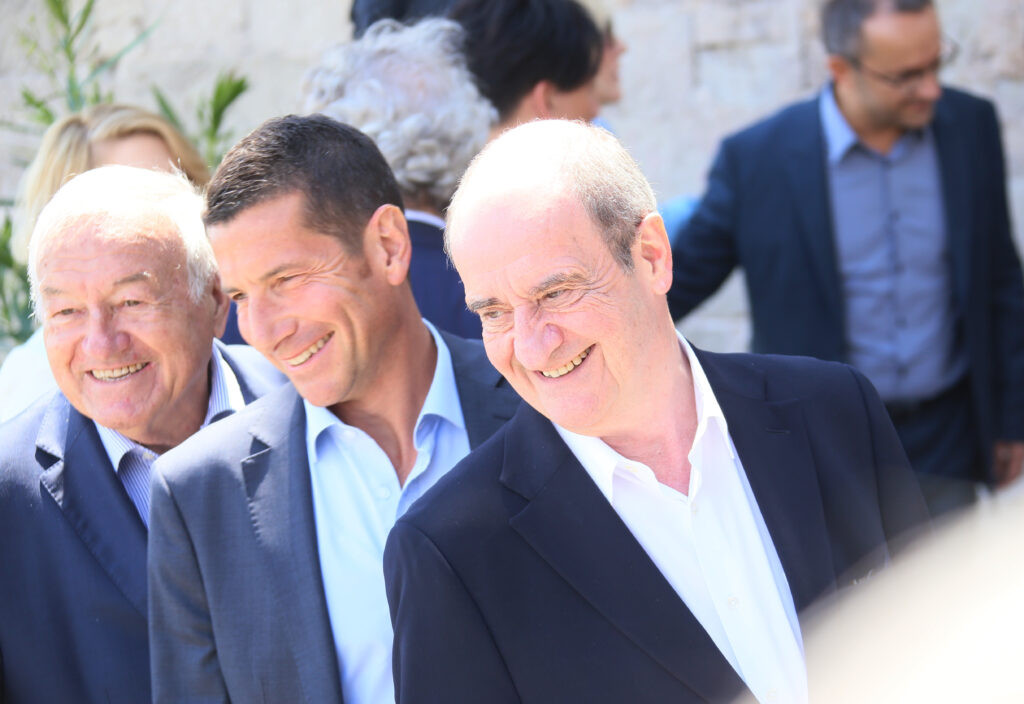
On July 28, 2016, he gained some measure of fame as the first mayor to ban the burkini on his city’s beaches. The ban was instituted quietly, without fanfare–indeed, the AFP, which published the information on August 11, found out about it only through someone’s Facebook post. His statement to Nice-Matin was blunt: “I have neither the time nor the desire to get in a controversy. I issued this ordinance among many others to assure the security of my town in the context of a state of emergency . . . . (sic) We aren’t banning the veil, nor the kippa, nor the cross, I am simply prohibiting a uniform which is the symbol of Islamic extremism. You have to stop caricaturing this ordinance. We share a common public space, there are rules to be respected.”
The “context” he spoke of was the July 14 Bastille Day truck attack in the city of Nice in 2016, carried out by a radicalized Tunisian immigrant. Before the driver was finally killed, he had slaughtered 86 people and wounded over 400 others, thus ending a brief respite after the Charlie Hebdo and Bataclan terror attacks in 2015. President François Hollande had ordered a state of emergency, allowing for curfews, identity checks, and increased search and seizure powers. About 30 French towns eventually banned the swimming costume, which looks much like a wetsuit; one by one, the towns lost court battles and the bans were finally ended by the Conseil d’État. France’s allies, already disapproving of the 2004 headscarf ban in schools, covered this new ban in tones of outrage, particularly after photos appeared in The Guardian which showed the beach police in Nice forcing a woman to take off part of her clothing (The Guardian, August 23, 2016).
Having issued this administrative decree would hurt him elsewhere, but not, at the moment, in France.
In the election of 2017, Lisnard stuck with the LRs and the doomed candidacy of François Fillon; Fillon’s chances had been severely damaged by the revelations of nearly 1 million euros paid to his wife, Penelope, for parliamentary work that she had not done. Rather than drop out of political sight, as many in the party had chosen to do, or join (officially or otherwise) the new movement En Marche! led by Emmanuel Macron, Lisnard appeared with Fillon on April 17, just a week before the first round of elections in 2017 (Fillon meeting in Nice, 4/17/2017, youtube). Party loyalty will serve him well, even as other once-potential LR leaders (Bruno Le Maire, now Minister of Economy, Gérald Darmanin, now Minister of the Interior, and Édouard Philippe, Macron’s first prime minister) will have to explain why they walked away in 2017.
In 2018 David Lisnard co-authored a book about the growing “incivility” of the French against each other. It turns into a study of communautarisme; as used in France, the term refers to the tendencies that cause people to see themselves as women, or gay, or trans, or Black–or Muslim–rather than as simply “French,” and part of the national community. (It is also seen as a dangerous intellectual tendency coming from the North American universities.) In the conservative journal Causeur, he described the school assignments of his ten-year-old son as “preachy preachy,” on “the climate emergency, intersectional struggles, the transgendered, the cisgendered, the combats of the LGBTQ community.” He had no trouble with the “sexual identity” of others, but criticized this “militant indoctrination” of children.
His solution to the growing divisiveness–which has turned into incivility, a lack of care for others–is cultural and creative arts education, a program he started in Cannes after the Hollande Ministry of Education had suppressed the teaching of Greek and Latin in 2015. He had recruited professors in these fields, as well as Philosophy, to come into the schools for short courses. “I attended certain modules, it’s formidable! . . . With culture, each can create for himself a capital which belongs to him and serves him throughout his life. This project is a vector of personal development, but also of ‘social cement.’ “To discover classical music, to learn a discipline, to act in a play, to play an instrument in a group . . . it’s a personal emancipation which permits them to escape social determinism, both by effort and by emotional pleasure. Our goal is not to make children into geniuses in music or theater, but above all into citizens, comfortable in their own skin, happy, and learning to work in a group, which is accomplished in a sentiment of belonging to the same group and to the same culture” (from Causeur).
His message in Refaire Communauté has a very mayor-centered approach, as one might expect. People have become increasingly uncaring about their shared spaces. They spit on the sidewalks. They leave waste, their own and their dogs’, in public spaces. They congregate in large groups and harass passersby. They blast rap music from radios, invading the peace of others. They vandalize property with graffitti. “Graffitti is an incivility. But graffiti is also an art. Sometimes. Not very often” (p. 59).
All of that costs money. Cannes, a town of about 74,000, in 2015 spent 750,000 euros per year picking up dog waste, 520,000 euros picking trash off the streets and steps and public squares, 28,000 euros scrubbing off the walls. Damage to buildings in the city cost over 1 million euros (p. 17).
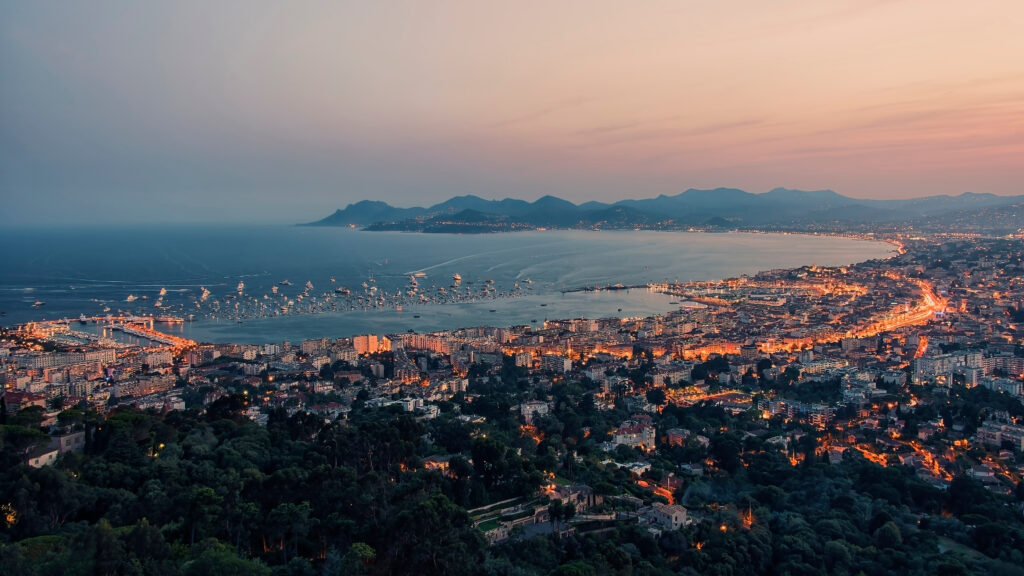
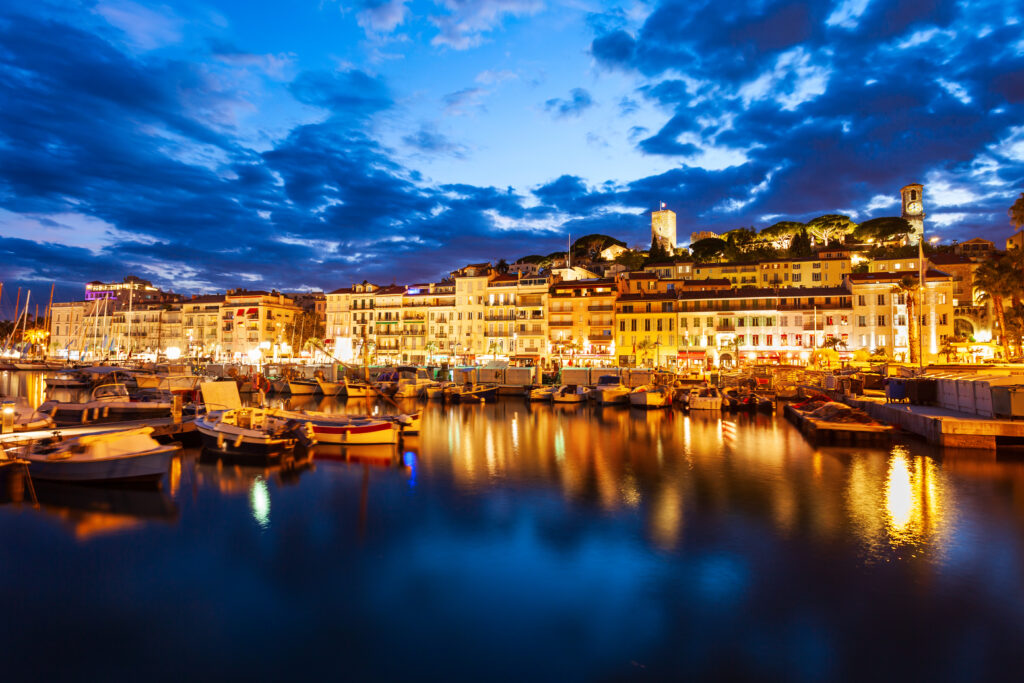
At the same time, the annual film festival, and the glorious Mediterranean location, has created a particular kind of economy with specialized needs. The Cannes Film Festival, usually in May, is trying for mid-July in 2021: a boost to the local economy, it also creates lots of local expenses. Beyond the Festival, the chief industry is tourism, which has been especially hard hit during the pandemic.
Cannes, as Lisnard told Paris Match in 2018, is sharply divided between the very rich and the very poor: “a record number” paid the wealth surtax assessed on the superrich (Macron got rid of it) while 19% were below the poverty line, against an average of 13% in other cities. It has the greatest number of surveillance cameras per inhabitant (1 per 580 people). The municipal police force of 250 (“not enough”) are armed with automatic weapons, and they have a local antiterrorist squad. During the Festival itself, the Ministry of the Interior sends reinforcements.

In November 2020 Lisnard published an editorial about the State under Macron, and branded it as l’État obèse–the “Obese State.” The phrase sounds a bit “off,” but allows for a number of creative offshoots–the obese state suffers from impuissance (impotence), its functions are “encysted” (enkysté); and of course it becomes an important question for interviewers, who ask him what he means by it. The editorial received much praise from a number of LR leaders, and in many ways it is standard LR material: decentralization; the cutting of red tape and regulations; the high taxes and even higher public expenditures, even before the “quoi qu’il coûte” (“whatever it costs”) of the present Covid crisis; the handing down of increasing numbers of administrative decrees that are unenforceable.
In what seems to be a more pointed campaign criticism, he says that Macron’s government is not waging an effective battle against Covid. Instead, it has passed restrictions, “destroying an important part of the economy, hundreds of thousands of jobs, and beyond that, what makes life not merely biological but social, spiritual, and humane.” Unlike the Right in the United States, however, Lisnard does not deny the reality of the virus or the need to take science into account, arguing instead that the state has not succeeded in testing, contact tracing, staffing and supplying the hospitals, and providing clear direction and protocols for various professions. In this column, Lisnard was one of the first to mock Prime Minister Castex’s decision in the fall of 2020 to send out 30 “Sub-Prefects of the Relaunch” (sous-préfets à la relance, sounding very much like one of the lesser Marvel titles) to “facilitate” the handing out of a total of 1 billion euros in relief funds. As the sub-prefects have moved to their assigned locations, many have ridiculed the program as one more bureaucratic layer in the “Leviathan” state, or–in a more sinister interpretation, as Lisnard himself suggested–one more attempt by Macron to “short-circuit” the local elected officials and to govern by decree from the top. The newspaper Le Point found that the mean age of the subprefects was under 30, and that they came from a variety of graduate schools, including the École nationale d’administration (ENA), the training ground for functionaries. What they will do, exactly, is unclear; Amélie de Montchalin, Minister of Transformation and Public Functions, has described the new sub-prefects as “a Swiss army knife, as someone who puts everyone around the table, the businesses as well as the elected officials.” Bruno Le Maire, the Minister of the Economy, showed precisely the irritation with the locals that, in turn, irritates them: “That’s enough with the decentralization! We reached out to the regions [a territorial division in France] with the second round of funding, and they spent only 3%. A few measly thousands of euros only. They are sometimes incapable of disbursing as quickly as we are.”
So is he planning to run for president? In his most recent interview, with Causeur, he stated that he hasn’t thought about it; he isn’t well known; he likes being mayor of Cannes. But the response to his editorial, he said. has been so positive that he has felt encouraged to keep contributing to the public forum. He is publishing a new book in April, which will be about the bonding of a society through shared art and culture–a kinder, gentler way of discussing the racial and ethnic problems in France than many others have found. And he is planning to issue a “program,” a set of ideas, in a few months.
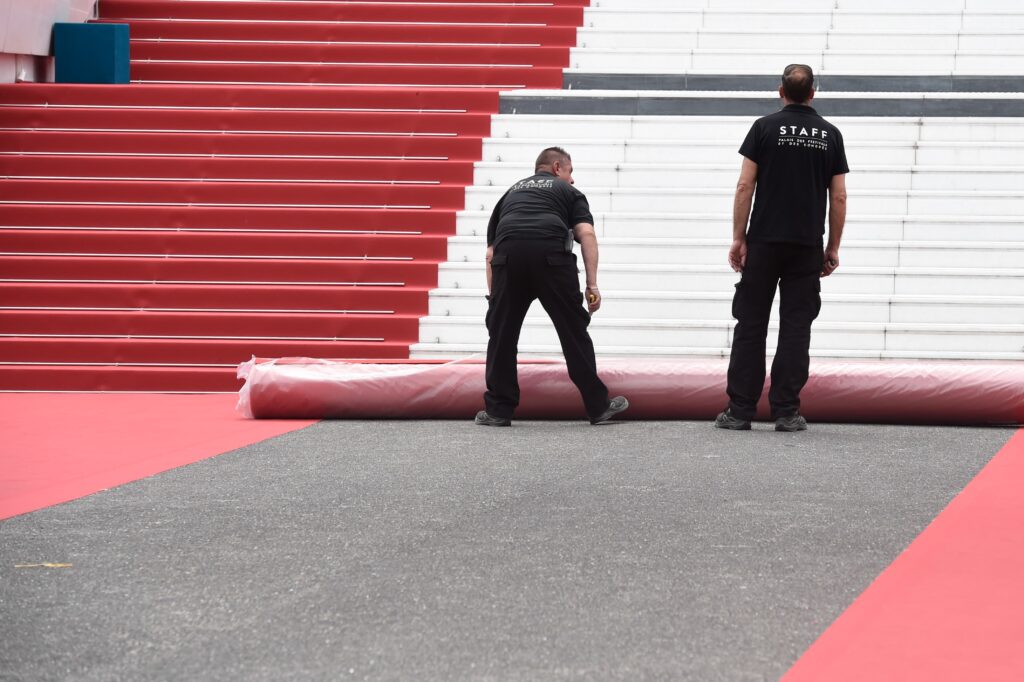
Header image from shutterstock.com
=====================================================
Bruno Jeudy, “Cannes: David Lisnard le Maire du Festival,” Paris Match, May 17, 2018.https://www.parismatch.com/Actu/Politique/Cannes-David-Lisnard-le-maire-du-Festival-1518140
Fabien Binacchi, “Cannes: Cinéma, clinique esthétique . . . Les plans de l’acquéreur de l’unique propriété privée de l’Île Sainte-Marguerite,” 20minutes, July 7, 2020.https://www.20minutes.fr/nice/2816643-20200707-cannes-cinema-clinique-esthetique-plans-acquereur-unique-propriete-privee-ile-sainte-marguerite
“Burkini: le maire de Cannes interdit les vêtements religieux à la plage,” Le Monde, August 11, 2016. https://www.lemonde.fr/societe/article/2016/08/11/le-maire-de-cannes-interdit-les-vetements-religieux-a-la-plage_4981587_3224.html
Antonia Mortensen and Angela Dewan, “French towns maintain burkini bans despite court rulings,” CNN, August 31, 2016.https://www.cnn.com/2016/08/31/europe/france-burkini-ban/index.html
David Lisnard, “La crise du Covid révèle la folie bureaucratique française,” Le Figaro, November 14, 2020.https://www.lefigaro.fr/vox/politique/david-lisnard-la-crise-du-covid-revele-la-folie-bureaucratique-francaise-20201114
Ben Quinn, “French Police make woman remove clothing on Nice beach following burkini ban,” The Guardian, August 23, 2016.https://www.theguardian.com/world/2016/aug/24/french-police-make-woman-remove-burkini-on-nice-beach
David Angevin, “Je ne suis ni réactionnaire, ni naïf!” Causeur, March 18, 2021.
Olivier Pérou, “A quoi servent les sous-préfets à la relance?” Le Point, January 22, 2021.https://www.lepoint.fr/politique/a-quoi-servent-les-sous-prefets-a-la-relance-22-01-2021-2410764_20.php